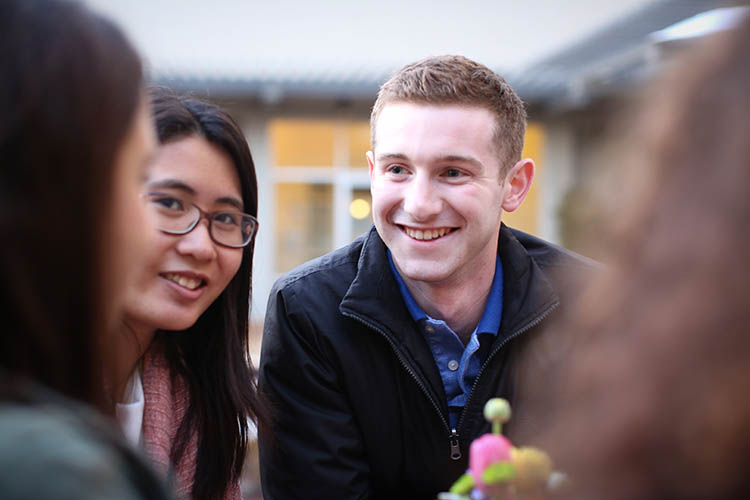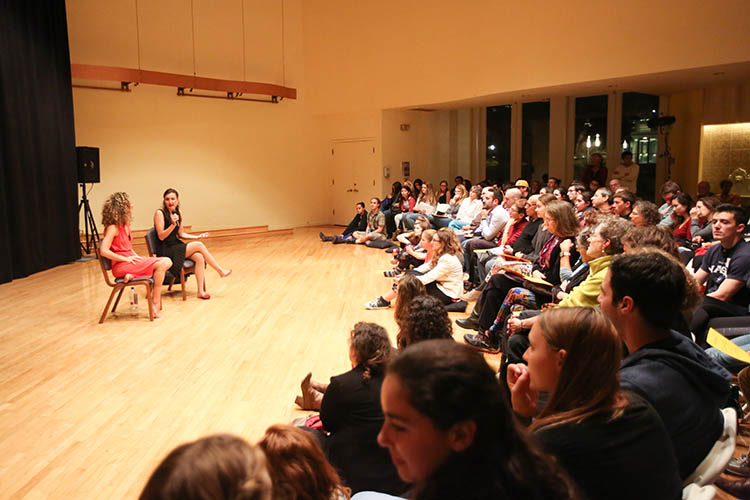$10 million gift from Helen Diller Foundation marks new name for Berkeley institute at 10 years
The University of California, Berkeley, today (Tuesday, Feb. 9) announced a $10 million endowment gift from the Helen Diller Foundation that will ensure a lasting legacy for its Institute for Jewish Law and Israel Studies. In recognition of this gift, the institute will now be known as the Helen Diller Institute for Jewish Law and Israel Studies at UC Berkeley.
For over a decade, the institute has created inspiring and meaningful educational opportunities — and just as importantly, a welcoming and positive place for Israel studies and student and faculty engagement on the Berkeley campus. This grant is intended to help ensure that the institute is well positioned to grow and foster excellence.
The gift kicks off a year of celebration marking the 10-year anniversary of the founding of the institute, an academic hub with campuswide scope housed at the UC Berkeley School of Law. The institute engages students, faculty and the broader community in Israel studies and in Jewish law, thought and identity, and has transformed the landscape for these fields on the campus.
“We are proud of the depth and breadth of academic offerings across the UC Berkeley campus that have been made possible thanks to the support for the Helen Diller Institute, and it’s a pleasure to see the Israel and Jewish Studies academic landscape flourish here and become a model for programs around the country,” said UC Berkeley Chancellor Carol Christ. “This consequential gift continues a history of pivotal philanthropy by the Diller family, and will help make it possible for us to educate leaders and scholars for generations to come.”
Since its inception in 2011, the institute has seen exponential growth in its programs. It started as a small unit made possible by seed funding from the Rosalinde and Arthur Gilbert Foundation and the longstanding support of the Gilbert Foundation, the Koret Foundation, the Jim Joseph Foundation, the Israel Institute in Washington, D.C., and other supporters.

The institute supports an undergraduate fellows cohort of more than 20 students per semester. (UC Berkeley photo)
Today, the institute supports an undergraduate fellows cohort of more than 20 students per semester and has sponsored 85 unique courses across a dozen departments. Classes have addressed topics such as Israeli constitutional law, transboundary water in the Middle East, minority rights in Israel, Jewish mysticism and more. The Helen Diller Institute brings five to six visiting faculty to campus per year. So far, it has brought approximately 40 faculty from Israel’s top-tier universities to teach Berkeley undergraduates.
“The generosity of the Helen Diller Foundation allows us to institutionalize our focus on supporting and mentoring students and expanding programs and initiatives that deepen scholarly inquiry and discourse across the UC Berkeley campus for the long term,” said professor Ken Bamberger, the Rosalinde and Arthur Gilbert Foundation Professor of Law and faculty director of the Helen Diller Institute. “The naming gift further cements the Helen Diller Institute’s reputation as a leading academic institution for Israel studies and the study of Jewish law, thought and identity nationally, placing Berkeley alongside such institutions as Harvard, Columbia, NYU, Brandeis, Northwestern and UCLA.”
The celebration of the institute’s 10th anniversary begins with leading Israeli author Etgar Keret speaking about his most recent writing and film projects and his approach to storytelling. It will continue with a two-part symposium, “Defining and Combating Anti-Semitsm and Hate Online,” and a Robbins Collection Annual Lecture, “Jewish Law for the Digital Age.” Celebrations will culminate in an April event celebrating the naming of the institute, featuring former Israeli Supreme Court Chief Justice Dorit Beinisch, Chancellor Christ and Berkeley Law Dean Erwin Chemerinsky.
The gift will enable the Helen Diller Institute to continue to expand the number and diversity of students and faculty it engages, and it will allow the expansion of teaching and learning opportunities.
“Our next step is to put in place the core classes on Israel that would constitute a minor in Israel studies, so that Berkeley can become a magnet for undergraduate students who wish to specialize in Israel,” said professor Ron Hassner, Helen Diller Family Chair in Israel Studies and faculty director of the Helen Diller Institute. “We will also continue to develop experiential programs for study and internship in Israel for those Berkeley students who aspire to study about Israel in Israel.”

The institute hosts many cultural events, including this conversation with dancer Miriam Engel. (UC Berkeley photo)
The institute has leveraged the resources of a globally preeminent public research university and professional school to create and grow a dynamic model for cultivating leadership among students and faculty, offering robust learning and leadership opportunities.
“We are grateful to the Helen Diller Foundation’s generosity, which will elevate the work of this prestigious and important institute, supporting student, faculty and community engagement here at the law school and across campus,” said Chemerinsky. “This gift will ensure that UC Berkeley students will be able to engage deeply with Israel studies and Jewish law, thought and identity at the highest level at the world’s leading public university for years to come.”
Helen and Sanford Diller and their family have made a lasting impact at Berkeley. In 2002, the family made pivotal endowment gifts totaling $5 million, providing funding for the campus’s Center for Jewish Studies and supporting its director, faculty research funds and graduate student fellowship and research funds. In 2019, the Helen Diller Foundation made a gift of $5 million to establish and name the Helen Diller Family Chair in Israel Studies — the university’s first endowed faculty chair in this field — that is held by Hassner.

